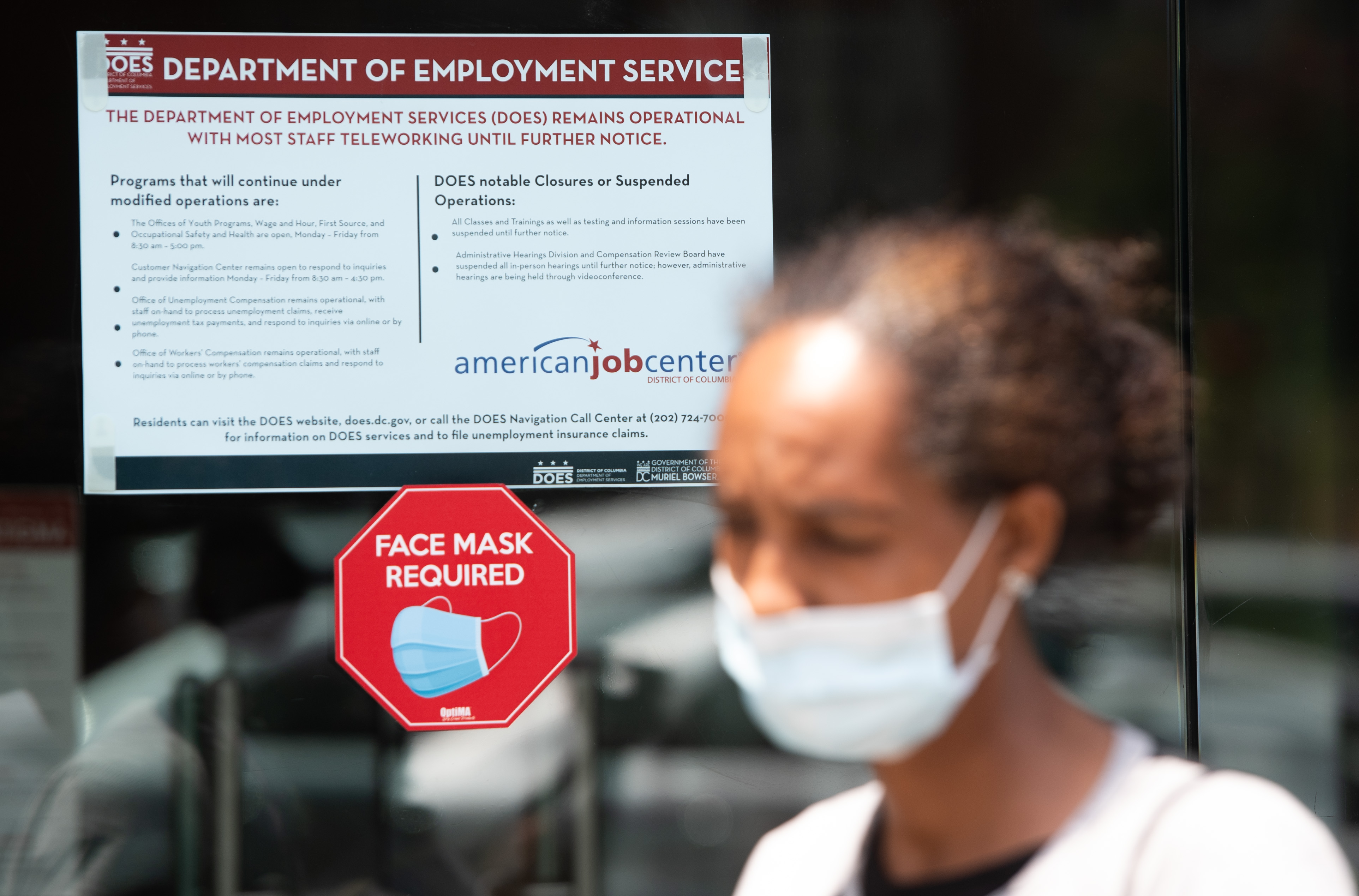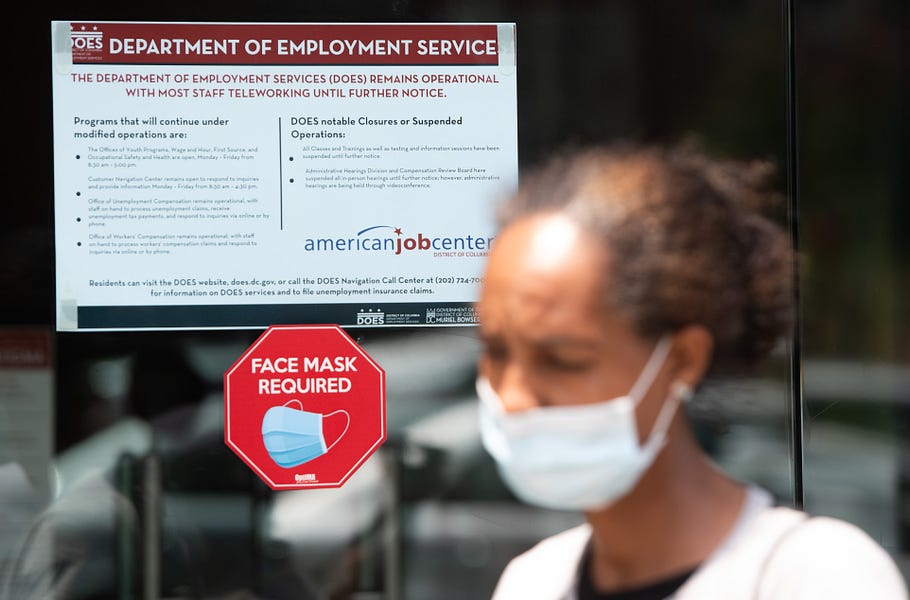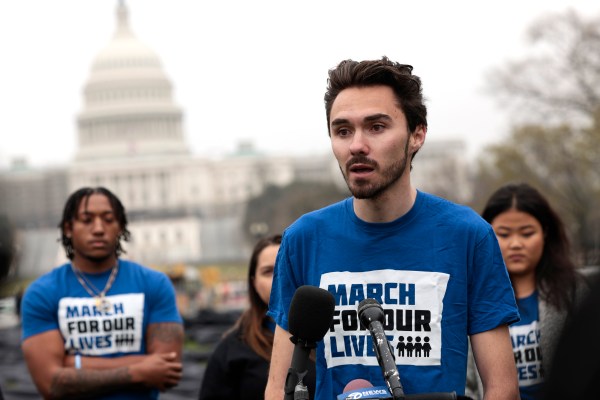Happy Friday! We’ve been hearing a lot from “disgruntled former employees” in recent weeks. What we want to know: Where are all the gruntled former employees?!
Quick Hits: Today’s Top Stories
-
The United States confirmed 44,713 new cases of COVID-19 yesterday per the Johns Hopkins University COVID-19 Dashboard, with 5.4 percent of the 835,868 tests reported coming back positive. An additional 883 deaths were attributed to the virus on Thursday, bringing the pandemic’s American death toll to 197,615.


-
Director of National Intelligence John Ratcliffe partially reversed course on his August decision to brief Congress on election security matters in writing only, saying Wednesday that members of the House and Senate Intelligence committees will continue receiving in-person briefings.
-
FBI Director Christopher Wray warned Congress of “very active efforts” by Russian operatives to undermine the campaign of Democratic presidential nominee Joe Biden through social media, online journals, and state media. “The intelligence community consensus is that Russia continues to try to influence our elections,” Wray said. He also noted that “racially motivated violent extremism” is the largest “bucket” of domestic terrorism in the FBI’s eyes, with white supremacist violence being the most prevalent.
-
President Trump said he is creating a new “1776 Commission” to counter more critical historical narratives of the American founding like the one popularized by the New York Times’ 1619 Project. The 1776 Commission will “restore patriotic education to our schools,” Trump said.
-
Amid bipartisan calls to reduce American dependence on Chinese manufacturing, Senate Democrats rolled out legislation that would devote $350 billion over 10 years to expand the United States’ industrial capacity and manufacturing capabilities.
-
Amy Dorris, a former model, accused President Trump of sexually assaulting her at the U.S. Open tennis tournament in 1997, when Dorris was 24 and Trump was 51. Nearly two dozen women have accused Trump of assault or unwanted touching; the president denies all the charges.
-
New York City Mayor Bill de Blasio delayed in-person public school openings for the second time—three days before classes were set to resume—after conferring with teachers’ union leaders who expressed reluctance to reopen classrooms. In-person schooling in the city is now set to begin on September 29 for K-8 schools, and October 1 for middle and high schools.
The Stimulus Stalemate Saga Continues

The president on Wednesday urged Republicans to “go for the much higher numbers” on the next coronavirus relief bill, upending the congressional GOP’s more restrained approach to stimulus negotiations in recent months. Despite Trump’s eagerness to pass another bill, Congress remains at a stalemate on stimulus negotiations as millions of Americans remain out of work.
The Labor Department reported on Thursday that 860,000 Americans filed initial jobless claims in the week ending September 12—a decrease of 33,000 from the week before. Though unemployment insurance claims remain at recessionary levels and the unemployment rate is hovering above 8.5 percent, the economy is faring much better than economists projected during the first few months of the pandemic. “We have already recovered a notable portion of the lost jobs from the trough of the recession,” says Manhattan Institute senior fellow Brian Riedl.
The Federal Open Market Committee (FOMC) issued revised projections Wednesday, and they are markedly rosier than earlier this summer. The Fed now expects the unemployment rate to fall to 7.6 percent by the end of the year rather than 9.3 percent, and GDP growth for the year is expected to be -3.7 percent instead of -6.5 percent.
Riedl said the Federal Reserve is likely revising GDP estimates because jobs are coming back faster than we expected. “Originally the assumption was that we were going to have unemployment rates as high as 12 to 14 percent through Christmas,” he said. “The fact that personal income in the second quarter actually rose as a result of a lot of the unemployment and stimulus checks I think put a bit of a cushion under the GDP estimate.”
“So if you put all that together, it’s still going to be a pretty brutal year, just a little less brutal than had been thought.”
“Things are looking better than a few months ago,” American Enterprise Institute economist Stan Veuger told us. “Part of the explanation is the overwhelming fiscal policy response.” But will things continue to look better without trillions of dollars in additional stimulus, of which Senate Republicans are wary? The deficit-to-GDP ratio for fiscal year 2020 is about 16 percent, a record figure since the end of World War II in 1945.
“Another stimulus bill is critically needed,” Jason Furman, the chair of the Council of Economic Advisers in the Obama administration, emailed us yesterday. “The economy had some cushion from the CARES Act but households are rapidly running through their checking account balances and will start to cut back on their spending which in turn will further hurt jobs and the economy more broadly.”
After the CARES Act’s $600 weekly unemployment insurance boost expired at the end of July, the president issued an executive action allowing states to tap into $44 billion in disaster relief funds to provide jobless Americans up to $300 a week in aid. A whopping $35 billion of those funds have been allocated in the weeks since, per the Wall Street Journal. But that money tree can’t be shaken forever, and, with the unemployment rate more than double what it was a year ago, lawmakers are searching for another source of funding.
Trump has expressed support for the $1.5 trillion COVID-19 relief framework unveiled by the bipartisan Problem Solvers Caucus earlier this week, which would send another round of $1,200 stimulus checks to Americans. “I like the larger amount,” the president said on Wednesday. “Some of the Republicans disagree, but I think I can convince them to go along with that because I like the larger number. I want to see people get money.” The framework would also provide $500 billion to state and local governments, and once again add up to a $600-per-week unemployment insurance boost, albeit capped at 100 percent of previous earnings.
But as we noted earlier this week, neither party has expressed support for the PSC’s framework en masse—and it’s going nowhere fast. Speaker Pelosi and House Democrats have thus far held firm at their $2.2 trillion demand, while Senate Republicans weren’t able to advance a $300 billion relief package last week.
Election Security
With the country moving closer to Election Day (46 days, people!) and voting already underway in many states, concerns over foreign interference continue to reverberate through Washington and across the country.
In a piece for the New York Times on Thursday, President Trump’s former hand-picked Director of National Intelligence Dan Coats wrote that this year, voters “face the question of whether the American democratic experiment, one of the boldest political innovations in human history, will survive.” Coats argued “democracy’s enemies, foreign and domestic,” are attempting to undermine faith in American political institutions and threatening to make Americans conclude, one way or another, that the electoral process is rigged or fraudulent.
FBI Director Christopher Wray seemed to validate Coats’ concerns on Thursday, testifying before the House Homeland Security Committee that Russia had engaged in “very active” efforts to undermine the 2020 elections, primarily by attacking the Biden campaign. While noting that the intelligence community had seen no evidence that Russia was targeting election infrastructure, he said they are utilizing social media, state media, and online journals to interfere in American elections.
“But Chris, you don’t see any activity from China, even though it is a FAR greater threat than Russia, Russia, Russia,” Trump tweeted at his own, hand-picked FBI director. “They will both, plus others, be able to interfere in our 2020 Election with our totally vulnerable Unsolicited (Counterfeit?) Ballot Scam. Check it out!”
Wray’s testimony comes shortly after congressional leaders confirmed that some in-person briefings on election security with Coats’ replacement, current DNI John Ratcliffe, would resume. Ratcliffe had announced in August that, due to leaks after in-person briefings, his office would move to updating Congress only through written reports.
Ratcliffe partially relented to the political pressure that ensued, this week announcing that while full House or Senate in-person briefings will not resume, briefings for the respective chambers’ Intelligence Committees will. Senate Intelligence Chairman Marco Rubio and ranking member Mark Warner released a joint statement after the news. “Director Ratcliffe reaffirmed that the Senate Intelligence Committee will continue receiving briefings, including in-person, on all oversight topics – including election matters,” it read. “As we have in the past, the Committee will continue to expect timely and complete information from our intelligence agencies.”
In the aforementioned op-ed, Coats proposed the formation of a bipartisan commission that would be made up of “national leaders personally committed—by oath—to put partisan politics aside” and given powers to work with law enforcement, the states, and the intelligence community to oversee election laws and regulations, and monitor foreign interference. Sounds like a good idea in theory, but some of his suggestions for the commission’s members—Anthony Kennedy and David Souter, congressional leaders, “business leaders from social media companies”—may reveal how difficult avoiding partisan battles over election interference will be.
Worth Your Time
-
Look into the future of operating rooms with this 3-D graphic from Laura Cooper, Merrill Sherman, Kevin Hand, and Kyle Kim at the Wall Street Journal. With cutting-edge technology like computer-assisted decision making, 3-D printers, and augmented reality, the medical field is already striving toward better patient outcomes and more efficient procedures for surgeons. But as technology advances, researchers from hospitals, medical centers, and universities move closer to outsourcing most of the surgical process to robotic assistants. “A fully autonomous robot surgeon is the Holy Grail—and many years off—but experts are developing devices that can perform surgical tasks with minimal human oversight.”
-
Olivia Troye, a top homeland security adviser to Vice President Mike Pence and a member of the coronavirus task force, announced Thursday that she’ll be supporting Joe Biden for president. In an interview with Susan Glasser of The New Yorker shortly before she went public with her criticism, Troye said she was nervous about the consequences of her decision but resolved to speak out anyway. “For him, it was all about the election,” Troye said of Trump. “He just can’t seem to care about anyone else besides himself.” She says she is most worried about what might Trump could do between now and November. “What I’m really concerned about is if they rush this vaccine and pressure people and get something out because they want to save the election.”
-
“Universities are punishing kids for partying—after cashing their tuition checks, of course,” Robby Soave writes in his latest for Reason. When Andy—a college senior at New York University—attended an outdoor gathering consistent with his city’s COVID-19 guidelines, he never anticipated that it would derail his chance of graduation and job security. Unfortunately, similar scenarios are unfolding across the country. Purdue suspended 36 students for partying, St. Olaf College removed 17, and Syracuse University kicked out 23. Amid a deadly and economically crippling pandemic, certain measures can and should be taken to stop the spread. But are college students on the receiving end of unfair heightened scrutiny? “The social gatherings are entirely unsurprising. But that’s not because students are uniquely incautious,” Soave writes. “On the contrary, students are just like the rest of us—trying to manage risk while still living life, months beyond the point where most people expected they would be able to go back to normal.”
Presented Without Comment
Also Presented Without Comment
Toeing the Company Line
-
“We need to agree that the Senate doesn’t work,” Nebraska Sen. Ben Sasse told Jonah on yesterday’s episode of The Remnant. “The Founders had this great idea that you separate power vertically and horizontally if you believe in universal human dignity, and the Senate is kind of the most unique single institution that the Founders created in the Constitution.” Tune in to hear the two run down Sasse’s suggested Senate reforms—including modified term limits, repealing the 17th amendment, and ending C-SPAN.
-
David’s latest French Press (🔒) argues it’s time to “put ‘pandemic law’ back on the shelf” and end what he sees as excessive deference to governmental bodies on coronavirus restrictions, requiring more justification for prohibitions. “When the crisis is unfolding—and confusion and uncertainty are at their greatest—deference is defensible,” he writes. “But as the confusion eases and we gain more knowledge, that deference should fade.”
-
Over at the site today, Andrew has a piece breaking down public health experts’ fight to get Americans to get vaccinated against the flu to help keep hospitals from getting overcrowded this winter. Most years, that’s a fight they lose: Will this year be different?
-
What’s it like to be teaching virtually this fall? Ryan Hooper is a social studies teacher in Baltimore, and he’s greatly concerned for his students. Attendance has been at about 40 percent, and those students who do login are beset by issues with technology or even find themselves caring for siblings while trying to be in class. “In Baltimore, where low-income students have historically been offered unequal educational opportunities, it is time to offer them the same in-person instruction that their more affluent peers receive.”
-
Sarah and David kick off Thursday’s episode of Advisory Opinions by commemorating Constitution Day, and then dive deep on Attorney General Bill Barr’s … interesting speech at Hillsdale College this week. Stick around until the end for a discussion of Lochner v. New York and coronavirus lockdowns, and some Electoral College math.
Let Us Know
We linked to Sen. Ben Sasse’s proposals to reform the Senate last week, but in light of his conversation with Jonah—do you think they would work? Click through for more detail, but here they are in brief:
-
Replace TV cameras with transcripts and real-time audio
-
Abolish standing committees
-
Allow committees to control some floor time
-
Live in dormitories together when the Senate is in session
-
Limit senators to one, 12-year term
-
Repeal the 17th Amendment instituting the direct election of senators
-
Sunset all pieces of legislation
-
Implement two-year budgeting that includes all federal spending, ending the distinction between appropriation and authorization
Reporting by Declan Garvey (@declanpgarvey), Andrew Egger (@EggerDC), Charlotte Lawson (@charlotteUVA), Audrey Fahlberg (@FahlOutBerg), James P. Sutton (@jamespsuttonsf), and Steve Hayes (@stephenfhayes).







Please note that we at The Dispatch hold ourselves, our work, and our commenters to a higher standard than other places on the internet. We welcome comments that foster genuine debate or discussion—including comments critical of us or our work—but responses that include ad hominem attacks on fellow Dispatch members or are intended to stoke fear and anger may be moderated.
With your membership, you only have the ability to comment on The Morning Dispatch articles. Consider upgrading to join the conversation everywhere.